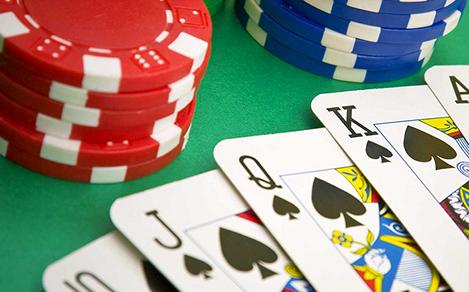This is a virtual card game for players of all skill levels. You can play – 7 games of Texas Hold’em, Omaha Hold’em and 5 draw cards – with up to 10 other players online at the same time. Texas Hold’em is very popular in Texas and Los Angeles. The game is played in many places where poker is not allowed, for example in kitchens, which is illegal. There are also many computers that can understand and handle the game virtually.
Texas Hold’em Champion is the first and only poker simulator for Texas Hold’em. Play against computers from all over the world or against your friends! If you are a beginner, you can start with the training mode. For the pros, the game has millions of combinations to test your skills.
Get a free card
It is not uncommon for players to be the last to act in Texas Hold’em. But most inexperienced players have only two options: bet or fold. More experienced players know that you can often get your opponent to fold by raising on the flop without betting on the flop itself!
This will likely allow your opponent to pass you on the turn, giving you the opportunity to check (if your hand doesn’t improve) or bet (if you hit your hearing card). This will save you money if you don’t improve, and make you money if you do.
However, this move can backfire when you raise again on the flop circle. In these cases, it will cost you money, but it is still a good game because you gain information and get a better hand.
Overcall
When you have a good hand and it’s your turn to act, playing value cards can be profitable, but it also comes with some risk. After completing the move, it’s time to highlight your bets on the flop ring and even raise for a better hand. If someone is going to go big, quickly re-raise. Check in the hope that your opponent will bet so that you can raise when it’s your turn.
For example, you are in front position and have A♥ Q♠. The flop is A♠ Q♥ 6♠. You check, and the three players in middle position check. The player in back position bets and then you raise.
The reason for the check-raise is to make it too costly to call a listening hand – such as an inside straight or a high card.
An overcall-raise in front position also gives you the initiative in your hand. If they still call, at least you’ve gained information about their strength and forced them to pay as much as possible to try to outplay you.
Semi bluffing
If you are looking for a semi-bluff, you can use an A8 flush. Only 1% of the time will A8 miss the flop (i.e. hit the public once), and even though it will lose to some bad flops like 99 and QJ, it has the potential to win a very large pot when it hits.
Tell when you should and should not play semi-bluffs so you know how much the rest of your table (and your opponents) can bluff, and can adjust your strategy accordingly.
For example, you hold J♥ T♥ in back position and the flop shows K♠ 6♥ 2♥, so you are given a flush draw with 9 mulligans.
There are three other players in the pot, and they all check to you. You bet without your best hand, but since they all check, they show weakness and may fold pocket pairs, a pair of 6s or 2s.
Even if your opponent checks, you can take a free card and hope your hand improves on the turn. If he bets recklessly on the turn, you have nine ways to be called. You don’t know any of his cards yet, but even if you check again on the river, you still have seven mulligans to improve on.
Slow Play
Playing against a strong hand is not usually the best strategy, but when you have a really strong hand, you might want to consider playing slowly. This means only passing/calling on one betting round and then betting/raising on the next few rounds.
Hello, poker player. Are you tired of losing because you are not actively participating in tournaments? In today’s poker world, you have to change the way you play when everyone is playing for chips that are not theirs. The good news is that we can help you become the best strategic player at the poker table. However, this strategy can easily backfire when you let your opponents take away the free cards that can beat you. Many players often slow play, losing out on pots they could have won if they hadn’t slow played.
When this happens, it’s a mathematical disaster because you lose a pot that you could have won if you had bet/raised and you have to pay off an opponent who beat you. Generally speaking, you should not slow play when one of the following conditions is met.
The free card can beat you.
- A free card is unlikely to give your opponent the second best hand.
- There are many opponents in your hand.
- It’s a big pot










